In a previous article, we identified the primary U.S. and Canadian tax obligations which apply to Canadian holders of Individual Retirement Accounts (IRAs) and 401k plans. In this companion piece, we present the principal U.S. and Canadian tax obligations which apply to Canadian account holders of Roth IRAs and Roth 401k plans.
U.S. TAXATION: SIMILARITIES WITH A TFSA
Non-Deductible Contributions: Roth IRAs and Roth 401k plans are U.S. tax deferred savings accounts which resemble Canadian Tax-Free Savings Accounts (TFSAs) in a number of respects. These plans are funded with after-tax money as opposed to IRAs, 401k plans and RRSPs, which are funded with pre-tax money. Contributions to a Roth IRA or a Roth 401k plan are not tax deductible. There are annual contribution limits on Roth IRAs and Roth 401k plans. These contribution caps are subject to annual changes. The cap varies on the plan and may be complemented by catch-up contributions for account holders who are 50 years or older.
Tax Exempt Status of Growth and Certain Withdrawals: Growth within Roth IRAs and Roth 401k plans is not subject to U.S. income tax. Moreover, like a TFSA, withdrawals from a Roth IRA or a Roth 401k plan may be tax-exempt. However, unlike TFSAs, there are more stringent criteria for withdrawals from a Roth IRA or a Roth 401k plan to be exempt from U.S. income tax.
Only “qualified distributions” are exempt from U.S. income tax. A withdrawal is a qualified distribution if two (2) criteria are met:
- Age: The account holder must be at least 59 and ½ years old.
- Holding Period: Only withdrawals of funds which were held in the account for at least five (5) years are exempt from U.S. income tax. In addition, growth on funds held in the account for at least five (5) years can also be withdrawn exempt of U.S. income tax.
“Non-qualified distributions” are subject to U.S. income tax at rates of between 10% and 37% and, if these distributions occur before the age of 59 and ½, an additional early withdrawal penalty of 10% applies.
FUNDING ARRANGEMENT
A Roth IRA, like a traditional IRA, and unlike to a Roth 401k plan or a traditional 401k plan, may be only funded with an employee’s contributions to the exclusion of the employer. In contrast, both an employer and an employee may contribute to an employee’s Roth 401k plan or a traditional 401k subject to the annual contribution limit. Employer contributions to a Roth 401k or to a traditional 401k plan are not included in the employee’s U.S. taxable income provided they do not exceed applicable annual contribution limits.
CANADIAN TAXATION: BENEFIT OF THE CANADA-US TAX TREATY
Taxation of Earnings Subject to Treaty Benefit: Generally, income earned within a Roth IRA or a Roth 401k plan is not exempt from Canadian income tax. Instead, a Canadian holder of either type of plan must include all income earned within the plan in his/her Canadian taxable income. However, a Canadian holder can elect under Article XVIII, Paragraph 7 of the Canada-US Tax Treaty to treat a Roth IRA or Roth 401k plan as a tax-deferred pension, in which case income earned within the plan and future withdrawals are exempt from Canadian income tax.
A number of conditions apply to the Treaty-based election for a Roth IRA or a Roth 401k plan:
- Timing: The election must be made in the first tax return the account holder files upon resuming Canadian tax residency.
- S. Tax Exempt Status of Withdrawals: A withdrawal from a Roth IRA or a Roth 401k plan is only exempt from Canadian income tax if it meets the criteria for being exempt from U.S. income tax, namely the 59 and ½ year age requirement and the 5-year holding period.
- No Future Contributions: If a Canadian resident holder of a Roth IRA or a Roth 401k plan makes additional contributions to his/her plan, he/she forfeits the tax-deferral granted by the Treaty-based election.
U.S. TAXATION ON DEATH
Under U.S. income tax rules, on the death of an account holder, a Roth IRA or Roth 401k plan is not subject to U.S. income tax for the account holder. Moreover, the named beneficiary of the plan is not subject to U.S. income tax on the balance provided the account was held for at least 5 years. However, the beneficiary of an inherited Roth IRA or Roth 401k plan will be required to withdraw the entirety of the plan within 10 years except if the beneficiary is one of the following persons: a spouse, a minor child, a beneficiary who is at least 10 years younger than the account holder on the death of the account holder, a disabled person as defined by the IRS, or a chronically ill person (as defined by the IRS). We note that if a minor child is named as the beneficiary of the Roth IRA or Roth 401k plan, once he/she reaches the age of 18, the entire plan must be withdrawn within ten (10) years after reaching the age of majority.
CANADIAN TAXATION ON DEATH
The Canadian tax treatment of a Roth IRA or Roth 401k plan on the death of a Canadian account holder will generally depend on a number of factors, including:
- Whether the Treaty-based election to treat the account as a tax-deferred pension was made.
- Whether the named beneficiaries would be subject to U.S. income tax on withdrawals from the plan.
In the event you work or have worked in the United States and hold a Roth IRA or Roth 401k plan, you have may several options with respect to your plan. Do not hesitate to contact one of our lawyers for guidance on these options.
The comments offered in this article are meant to be general in nature and are not intended to provide legal advice regarding any individual situation. Before taking any action involving your individual situation, you should seek legal advice to ensure it is appropriate for your circumstances.
About the author
Shlomi Steve Levy is a Partner of Levy Salis LLP and is a member of the Quebec Bar, the Law Society of Ontario (L3), the Society of Trust and Estate Practitioners, and the Canadian Bar Association.



